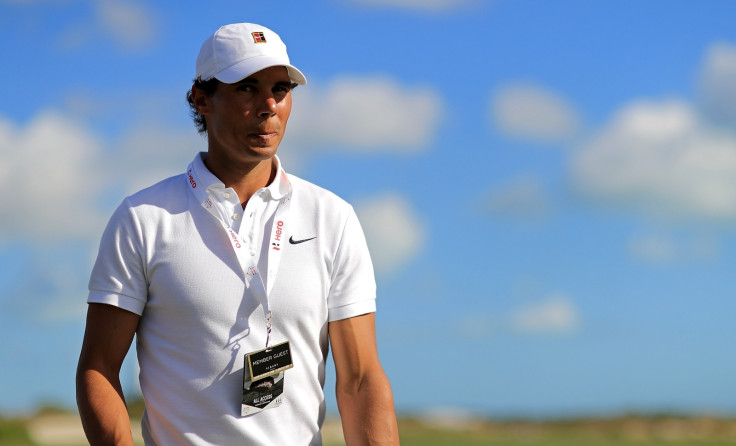Rafael Nadal praises Roger Federer but labels Swiss ace's limited schedule in 2017 a 'big risk'
KEY POINTS
- Federer skipped the entire clay court swing of the season, including the French Open.
- The Swiss ace played 57 matches, lost five times and won seven titles, including two majors.
Rafael Nadal admits Roger Federer took a 'big risk' by playing a limited schedule in 2017 in order to ensure he remained fit and fresh for the important tournaments.
The Swiss ace skipped the entire clay court swing of the campaign, including the French Open in order to focus on the grass and hard court events later in the year. The decision was made after he had won three of the first four tournaments of the 2017 season – the Australian Open, the Indian Wells and Miami Masters.
Federer played just 57 matches throughout the campaign and lost just five times. He also picked up seven titles including two majors – the Australian Open and Wimbledon. Nadal believes that it was a big risk taken by the 19-time men's singles Grand Slam champion and it only looks remarkable because he was successful.
In comparison, Nadal played 78 matches throughout the campaign, losing 11 times and picking up six titles which also included two majors – the French and the US Open. He did not skip too many events in the first-half of the campaign, but was forced to miss the Swiss Indoors and pull out midway at the Paris Masters and the ATP Finals due to a knee injury.
The Spaniard revealed that Federer's way does not suit him and he has go follow his method of discussing his plans with his coaching team and his medical team before making a decision with regards to his schedule. Nadal's method also proved successful as he ended the year as the world No.1 for the fourth time in his career.
"He had a fantastic year," Nadal said praising Federer, as quoted by the Express. "What he did is very difficult. Playing so less, being able to win almost every time you return to play is a very big risk."
"When it goes well, it seems its right but in truth it's very difficult that it happens the way it did.
"If you try it again, you may not be as successful as you were this year. But well, I am 31 and he's 36. I have my career and he has his own," the Spaniard explained.
"I do what I believe is better for me by always getting help from doctors, coaches, physical trainers, and deciding with my team.
"Together we come to an agreement that is better for my body and tennis," the 16-time Grand Slam champion added.























